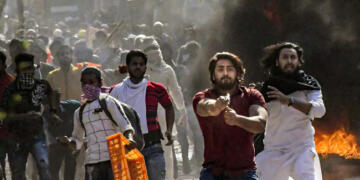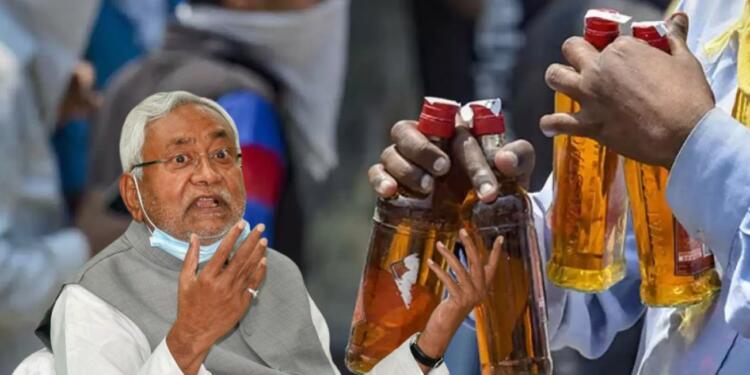Bihar CM Nitish Kumar has been battling criticism over frequent hooch tragedies. Meanwhile, he has made a sweeping statement saying that Mahatma Gandhi opposed liquor consumption and those who go against his principles are “Mahapaapi and Mahaayogya.” He added, “I don’t consider these people Indians.”
Those who drink cannot be called ‘un-Indian’
This has to be more sufficiently clear- drinking has nothing to do with nationality or nationalism.
One doesn’t lose his Indian-ness or nationalism simply because he drinks. India’s first Prime Minister Jawaharlal Nehru too drank when he was young, though he gave it up by the time he became the Prime Minister of the country. Now, by the logic of denouncing those who consumed liquor as ‘un-Indian’, one ends up questioning the Indian-ness of the nation’s first Prime Minister himself.
Those who drink hooch are responsible; not the state government
The Bihar CM also said that people consume hooch, despite knowing that it is harmful. Therefore, they are responsible for the consequences and not the state government.
Kumar said, “It’s their fault. They consume liquor even after knowing that it could be toxic.” He made the remarks after the Bihar Assembly passed an amendment bill making the liquor ban in Bihar less stringent for first-time offenders.
The alcohol issue has snowballed into a political issue in the Indian state of Bihar, following recent hooch tragedies that claimed 60 deaths in the state in the last six months of 2021.
Should alcohol ban be banned?
Let’s be very clear about this. Consumption of alcohol is bad. It is injurious to health. However, alcohol bans aren’t the solution.
Read more: Why liquor ban in Bihar is a bad idea?
Alcohol consumption should be seen more as an individual choice and a part of individual autonomy rather than being forbidden by a penal law. You may ask why? Well, like many other things that aren’t fit for human health, to drink or not to drink is essentially a matter of choice.
Yes, the government can always create awareness and point out how alcohol consumption is injurious to health. This makes the fight against the growing consumption of alcohol and other intoxicants more effective and meaningful.
Difficulty in enforcing bans
Enforcing a liquor ban is difficult for any administration. When any popular product is banned, it leads to the rise of the black market, thus, the liquor mafia. The unemployed youth and many students look for easy money through the smuggling of liquor from neighbouring states.
What the government ends up dealing with is the rise of a spurious liquor industry. In Bihar, hundreds of people died due to consumption of desi liquor or overconcentrated industrial liquor since prohibition was imposed four years ago.
So, people do consume low-quality alcohol, but what the government ends up losing out on is a prolific source of revenue. Since the product is made illegal, the government cannot tax it. Alcohol becomes a commodity in the black market and smuggling activity becomes rampant. Yes, the government can always launch crackdowns, but it is not an easy task to completely eradicate the problem.
This brings us to the use of State resources. Last year, the Supreme Court too had remarked that the liquor ban was affecting the functioning of the judiciary in Bihar, as 14-15 Patna High Court judges were dealing only with bail pleas under the Bihar Prohibition and Excise Act.
The State has to deploy its administrative resources towards the implementation of the ban. And the judiciary too has to deal with cases relating to the liquor ban. Such resources can however be put to better use if there is no liquor ban.
There is thus a compelling case to revoke the ban on alcohol in Bihar.



























